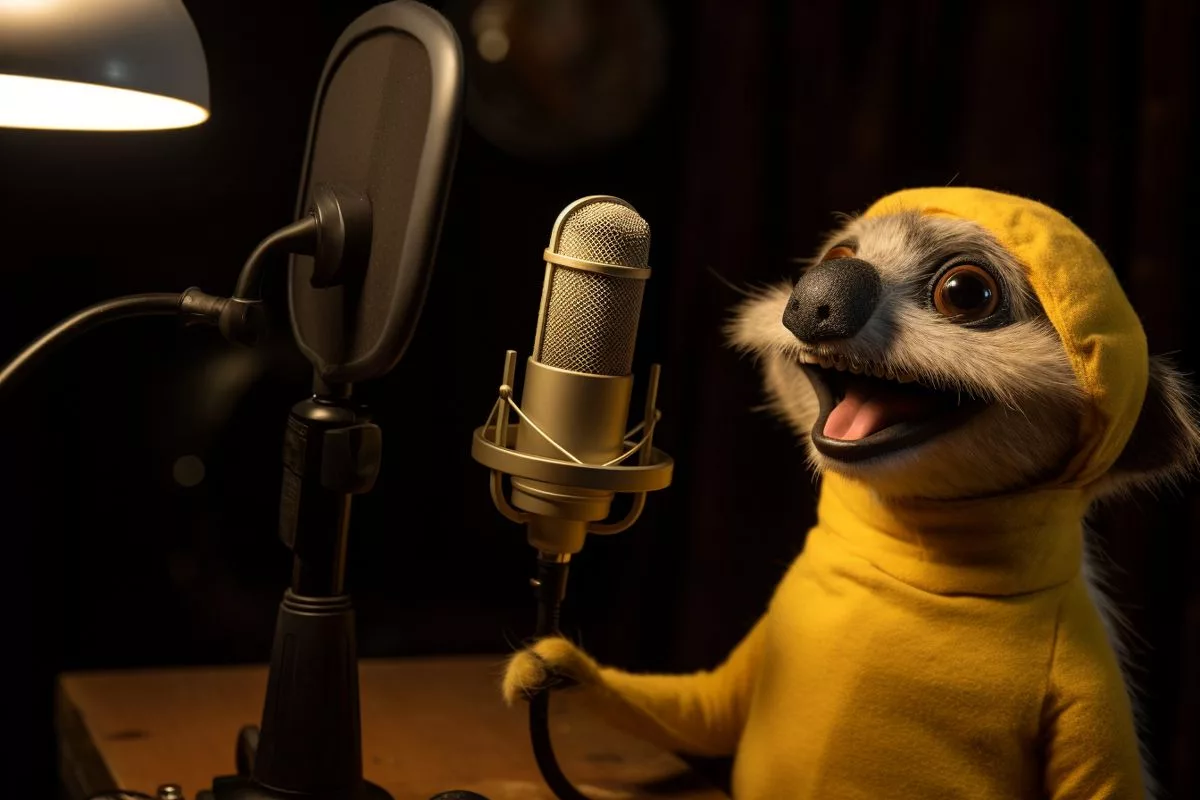Lindani Nkosi is a renowned performer in South African TV, best known for his role as the puppeteer behind Moshe on Takalani Sesame. He has been portraying Moshe for over 20 years, contributing to the show’s message of kindness. Nkosi’s dedication to puppetry is evident in his ability to breathe life into his character, showcasing the transformative impact of this unique art form on television.
Lindani Nkosi’s Mastery in Puppetry: A 20-Year Voyage with Takalani Sesame
Who is Lindani Nkosi and how has he contributed to South African TV?
Lindani Nkosi is a distinguished performer in South Africa’s television industry. His most memorable role came as the puppeteer behind Moshe, the yellow meerkat on the children’s show Takalani Sesame. Nkosi has been portraying Moshe for over 20 years, breathing life into the character and contributing to the show’s message of kindness.
A Stellar Talent in South African TV World
Within South Africa’s dynamic television landscape, few performers can claim as broad and long-standing a career as Lindani Nkosi. With over two decades of experience, Nkosi has distinguished himself through an array of memorable roles on programs such as Isidingo and My Brother’s Keeper. His exceptional journey as Moshe’s puppeteer, a cherished character in the children’s series Takalani Sesame, however, truly sets him apart.
With a professional voyage spanning 23 years, Nkosi has become inseparable from his character, the gigantic yellow meerkat named Moshe. His incredible journey initiated with the debut of Takalani Sesame back in 2000 and has since flourished, depicting an uncommon level of artistic commitment. Nkosi cherishes the beauty of puppetry, acknowledging it as a unique form of art he continues to value.
Breathing Life into Moshe
Portraying Moshe involves more than merely controlling a puppet. It is about infusing vitality into a character that has captivated the hearts of countless South Africans over time. Witnessing the surprise and delight on fans’ faces when they discover that Nkosi has been the force behind Moshe all along is comparable to the joyful unveiling of a closely guarded secret.
Takalani Sesame exudes an enchanting appeal, captivating children and adults alike with its vibrant characters and engaging storylines. Nkosi has been fundamental in creating this enchantment, significantly contributing to the show’s superior quality. His participation goes beyond simple performance; it’s a vital effort in teaching children about kindness — a crucial life lesson that Takalani Sesame strenuously advocates.
A Dynamic Team of Puppeteers
Although Nkosi’s contribution is undeniably substantial, the show’s completeness is owed to its other puppeteers as well. Damon Berry, the performer behind Elmo/Neno, the show’s youngest puppet, infuses a spark of youthful energy into the series. Meanwhile, Tumi Maretele, a former actress from Muvhango and Binnelanders, illuminates the screen as Zuzu, a six-year-old magenta monster.
Nyanga Tshabalala also contributes to the show’s unique personality, playing the blue furry monster Sinkwe. Unlike traditional actors, these puppeteers not only personify their characters, but they also skilfully operate complex puppets, creating a fascinating and entertaining interaction.
The Impact of Nkosi’s Dedication to Puppetry
Lindani Nkosi’s enduring association with Takalani Sesame showcases the potency of perseverance, devotion, and the transformative impact of puppetry. As an actor and puppeteer, he continues to mesmerise audiences, enriching the South African television sector while fostering the art of puppetry.
As this journey unfolds, Nkosi’s enduring portrayal of Moshe stands as a testament to the artist’s heartfelt devotion behind each captivating performance. The success of Takalani Sesame and the popularity of characters like Moshe underscore the potency of this unique art form, solidifying its position in the viewers’ hearts and the history of South African television.
- Who is Lindani Nkosi and how has he contributed to South African TV?
Lindani Nkosi is a distinguished performer in South Africa’s television industry. His most memorable role came as the puppeteer behind Moshe, the yellow meerkat on the children’s show Takalani Sesame. Nkosi has been portraying Moshe for over 20 years, breathing life into the character and contributing to the show’s message of kindness.
- What sets Lindani Nkosi apart from other performers in South African TV?
With over two decades of experience, Lindani Nkosi has distinguished himself through an array of memorable roles on programs such as Isidingo and My Brother’s Keeper. However, his exceptional journey as Moshe’s puppeteer, a cherished character in the children’s series Takalani Sesame, truly sets him apart.
- What does it mean to portray Moshe on Takalani Sesame?
Portraying Moshe involves more than merely controlling a puppet. It is about infusing vitality into a character that has captivated the hearts of countless South Africans over time. The character teaches children about kindness — a crucial life lesson that Takalani Sesame strenuously advocates.
- Who are the other puppeteers on Takalani Sesame?
Damon Berry, the performer behind Elmo/Neno, the show’s youngest puppet, infuses a spark of youthful energy into the series. Meanwhile, Tumi Maretele, a former actress from Muvhango and Binnelanders, illuminates the screen as Zuzu, a six-year-old magenta monster. Nyanga Tshabalala also contributes to the show’s unique personality, playing the blue furry monster Sinkwe.
- What impact has Lindani Nkosi’s dedication to puppetry had on South African TV?
Lindani Nkosi’s enduring association with Takalani Sesame showcases the potency of perseverance, devotion, and the transformative impact of puppetry. As an actor and puppeteer, he continues to mesmerise audiences, enriching the South African television sector while fostering the art of puppetry.
- How has the success of Takalani Sesame impacted the history of South African television?
The success of Takalani Sesame and the popularity of characters like Moshe underscore the potency of this unique art form, solidifying its position in the viewers’ hearts and the history of South African television.












